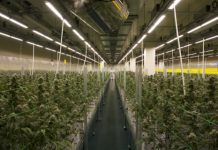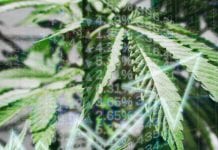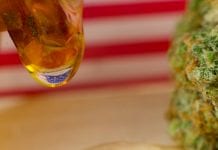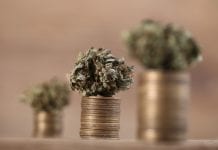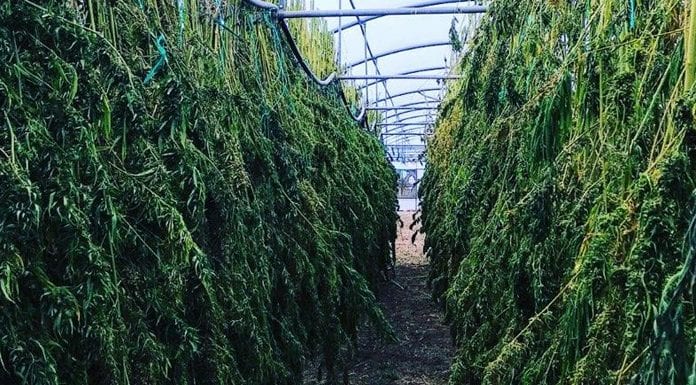
SovereignPort CEO Sarah Roberts Yetman speaks to MCN about the future of the global CBD market and fears over the long term impact of COVID-19.
Sarah Roberts Yetman is the CEO and founder of SovereignPort, an international company supporting the brokering, supply chain and global transport logistics of CBD and industrial hemp. She is a lifelong entrepreneur; a member of the Choctaw Nation; and a vocal and passionate advocate for sustainable production, ethical capitalism and green solutions. Yetman spoke with the Medical Cannabis Network publication about the status of the world’s CBD market in the wake of the global COVID-19 pandemic and fears around the impacts of a long term international recession on the industry.
What role does SovereignPort play in the wider CBD and hemp industrial landscape?
While we offer many different types of services, our speciality is finding products which we can guarantee and streamlining logistics customs clearance for CBD and hemp. Initially, we started working on global import and export logistics, but since then the market has exploded; and there is now enough work to keep us busy for years. It just seems to keep expanding – the needs and opportunities presented by the industrial hemp market are like nothing I have ever seen before. I believe deeply in this work; and I am so excited to see what is happening to the global market. CBD is a godsend to so many, and my ability to help ensure that it makes its way affordably and safely around the world, to the patients who rely on it, has been and continues to be an honour.
How has the COVID-19 pandemic impacted the CBD market worldwide?
Not surprisingly, with people around the world focusing on ‘essentials’ – and due in part to the buildup of product before it happened – we did see a slowing of shipments of CBD, unprocessed hemp and isolate around the world for a time. But the true reality is that CBD does already constitute an essential to hundreds of millions of people around the world; and once supplies were diminished, shipments almost immediately picked back up.
In fact, SovereignPort has just opened a Free Trade Zone (FTZ) port in the Canary Islands in order to better assist in the quick and simple clearance of hemp shipments into and out of the EU. We have also opened a new office in Berlin. Furthermore, we are working with Cyprus to open a port in Greece for large shipments as well. We couldn’t be more excited.
Were you concerned that the potential looming recession may create a gap in demand for CBD?
For a bit of time, we thought there might be some concerns, but the reality is that CBD-based medicine is widely applicable for a great many people. Meanwhile, there is an ever-growing range of sustainable products created using hemp: the reality is that hemp can – and likely will – replace so many other materials, from textiles, to plastics, to building materials and potentially even fuel; and pandemic or not, the need to find long term sustainable and environmentally friendly materials outweighs concerns of a recession.
Aren’t shipping routes closed down during the pandemic?
In reality, borders are not closed, and shipping continues to be possible. During this time we have been deeply reliant on our local, national and global supply chains for all our necessary goods; and we are so grateful to the men and women who are working diligently to keep those open. With regard to CBD and industrial hemp, we have the necessary ports, offices, and labs active in the US and EU to process shipments and clear products in a safe environment.
During this time, we have been working with suppliers of other goods to help ease logistics for the shipping routes that remain open. Again, though we can only help as long as our own shipping routes and ports remain open, we want to do everything we can to help and support the entire supply chain, and be sure that people get the goods that they need. Also, while we normally will only negotiate shipments of full containers, because we are working with multiple suppliers and doing the best we can to help on every level, we are willing to ship smaller masses of CBD, hemp and related products. It is our hope that this will help keep smaller producers afloat during these uncertain times.
Are there concerns over the potential contamination of products?
Because CBD is a plant commodity, extraordinary efforts are made to maintain cleanliness and decontamination. The shipping containers from the port of exit are disinfected industrially and cleanly loaded. Once the product has reached the port of entry, we carefully unload the original container and reload the product into clean containers before it is put into the supply chain. We also re-test the product in a lab before shipping. CBD is a health product; and as such, we are hyper-focused on maintaining the healthiness of these products for everyone involved, including both consumers and all personnel involved in the supply chain.
How did you come to be involved with industrial hemp?
During my career, I worked for the oil and gas industry for a number of years. While I am not ashamed of that work, the further along I delved into this world the more I saw just how unsustainable a profit-first business model was – to workers, to communities, to the planet. The need to find an industry which fit this ethos became deeply important to me. I did not know at the time what that industry might be, or if it was even possible; and I was becoming disillusioned.
It was at this point that an old friend with whom I had not spoken with in many years reached out to me. He told me that he was working in industrial hemp. It did not take long for me to realise that the answer to my yearning would be in the world of industrial hemp – and I absolutely believe that this industry and this core product are going to make all the difference for the world, and this has become my life’s work.
Beyond the benefit to the community that this product represents, it is also fantastic for the environment. I’ve already discussed the many downline applications that will replace less sustainable and more toxic materials and textiles; however, hemp is also an amazing plant. Hemp is so resilient and incredible that we can plant a field of cannabis plants on polluted farmland where other crops can not safely grow, and the hemp will clean the land, making it useful again. Furthermore, hemp is far more efficient at converting CO2 gases into O2 than most other trees and plants. This means that the more hemp fields we plant, the more we are fighting greenhouse gases and helping to offset carbon emissions. I’ve never before been involved in an industry that was truly a win-win-win all around.
Where do you see your company going into the future?
One of the things that is great about working in an industry and arena that also constitutes a core life’s purpose is that you are ready for anything – and it seems that everything is coming our way. The opportunities that are arising for SovereignPort are growing and expanding every day. We just inked a deal to open a hemp processing plant in Arkansas, which will be the largest hemp processing plant in North America. That plant will also oversee the manufacturing of textiles and other products, and it is the first of many.
At a time when farmers and rural communities are struggling, industrial hemp constitutes a cash crop for many. As the uses for hemp seem to be increasing, and the global demand for CBD continues to grow, the need for more acreage of hemp growing around the world is paramount. As such, we also work with farmers to educate them on how to convert their crops; we assist in brokering deals between those farmers and the international buyers; we assist in transport and customs clearance for hemp biomass; and we assist in overseeing the processing of that hemp.
Multiple times a day, every day, I am receiving calls that open new doors and opportunities. Our staff is expanding exponentially. Our offices are growing around the world. Our family of companies also keeps growing. It’s a bit of a silly joke in the team, but we refer to it as the SovereignPort Hempire; the reality is not that far off.
Is there anything in particular that excites you among all of these ventures?
I am a proud member of the Choctaw Nation, an indigenous tribe in North America. As many of your readers likely know, the Native tribes of North America have been treated as poorly as you can treat a group of people, and many tribes have been left destitute and struggling. One of the initiatives I am leading is a programme which establishes processing plants on Native lands and helps their farmers get set to grow hemp crops. I believe that I can help numerous tribes around North America to be able to create sustainable and growing income with a product that is good for the environment. I’m deeply and personally excited for that undertaking.
Any final thoughts?
While the CBD market is not immune to such a challenging economic obstacle as that which we are currently facing, and will likely continue to face for some time, CBD is a supplement that has been found to have extraordinary impacts on the health and wellbeing of hundreds of millions of people around the world; and hemp is a miracle product that can – and will, if I have any say in it – help save the world. As such, neither recession nor pandemic will entirely eliminate this vibrant and growing market. While it may not be fully ‘recession proof’, I think you will find that it is at least ‘recession resistant’ and will continue to be an integral and new commodity in 2020 and beyond.
For further information, please take a look at www.sovereignport.com.
Sarah Roberts Yetman
Chief of CBD Delivery
Sovereignport LLC
+1 720 230 3569
+34 822680247
ryan@sovereignport
https://sovereignport.com
This article is for issue 3 of Medical Cannabis Network. Click here to get your free subscription today.



